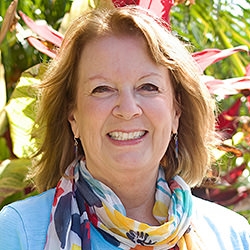

Search Results: feelings
-
No one on their deathbed wished they worked more. Working is unlikely to bring a meaningful life. And yet greeting friends with survivalist expressions, such as, "I'm dead-tired", can feel like affirming our own worth. Taking time off can bring inner spaciousness, ease, rest and consequently time to meet life, to really meet it. Which brings more clarity into the question of what we would like to celebrate on our deathbed.
-
This anecdote illustrates how a young man had the social awareness to consider how male conditioning may bring up competitiveness in his interactions with another man. The young man offered transparency and checked for consent in a way that shows an embodiment of power-with, togetherness, consideration, care, collaboration... and all without displaying any formal NVC training, and without looking to impress.
-
Even leaders we admire may exhibit behaviors that could be labeled as abusive, at least slightly. This includes not treating followers as equals, using charm, and hiding or twisting truth. In such scenarios a key reason for this is loneliness. If we're using our work and position primarily to gain for appreciation, acknowledgement, and acceptance then we need to examine our own loneliness. We need feedback to keep such conduct in check.
-
The American mythos of Independence Day is that liberty, equality, and opportunity are for all. Yet since the country's formation, these needs have been for some at the expense of others. It started with the brutal robbery and genocide of Native Americans and slavery of Africans. And this theme continued for generations in various forms, including how we related to other peoples, countries, and the ecosphere. To achieve true justice, liberty, and opportunity for all we may need to overcome the ego's sense of separation. Compassionate noncooperation may also be key.
-
Judgment is an attempt to protect from hopelessness or insecurity, at high cost. Instead, check in with fear, grief, or hurt. Then wonder what needs are at stake for everyone. This makes space for grief instead of anger, for negotiation rather than control, and for "calling in" rather than excluding. Wonder: “For whom would this be life-serving or not?”, “What strategies would care for all needs?” or, “What can I contribute now?”
-
When a person of color (A.K.A. a person from the Global Majority, or GM) tells a marginalization story that triggers a defensive response from a white participant in a group, to foster awareness and healing, leaders can address the white person's distress with empathy, highlighting the common dynamic of prioritizing white pain. From there, leaders can offer GM participants opportunity to share their experience and make requests of the group.
-
It is the first day of 2024 and I am filled with gratitude and awe. Yesterday, I celebrated my 9th year of hosting my annual New Year’s Peace Meditation. We had over 800 people register from many, many different countries and the meditation was interpreted into 4 different languages. It was incredibly moving, connecting, and hopeful for me!
-
In this snippet from Duke Duchscherer's course, Restorative Dialogues: Transforming Conflict, Building Community Resilience, he shares a structured approach for conflict resolution or communication facilitation. It involves a facilitator guiding a conversation between two parties in conflict. The process begins with one party expressing their perspective while the other listens actively. The facilitator then prompts the listener to paraphrase what they heard, ensuring mutual understanding. This cycle continues until both parties feel heard. Subsequently, the facilitator encourages them to discuss potential solutions collaboratively. Once both sides are satisfied, the session concludes, with participants potentially swapping roles for further practice. The aim is for everyone involved to gain experience in effective communication and conflict resolution.
-
At the end of the calendar year, many of us feel an old pressure to come up with New Year's resolutions
This may be followed by internal demands along with our inevitable and life-alienating reactions to those demands.
Sound familiar? Are you looking for something different?
If your answer is yes, then join Kristin Masters for a delightful 3-session journey into intention setting, accompanied by warm companionship from yourself and one another.
-
- Discover how mediation is a fundamental social skill that everyone can learn
- Gain the skills to stay centered when a conflict becomes heated
- Learn how to lead a dialogue toward sustainable agreements
- Help facilitate connection and creativity to discover and meet everyone’s needs
-
Dear friends,
My book, Peaceful Living: Daily Meditations for Living with Love, Healing and Compassion has been on my mind a lot lately. It turns 20 years old next year, which I feel joyful about. Along the way, I came across this meditation that I wanted to share with you:
November 26
Change your thoughts and you change your world. – Norman Vincent PealeDeveloping Tolerance
I used to think that Chihuahuas were dumb dogs and bulldogs were ugly. Then one of my friends bought a longhaired Chihuahua named Tilly and another bought an English bulldog named Emma. Once I got to know these dogs and could see how truly sweet they are, it didn’t take long for me to fall in love with both of them.
-
CNVC Certified Trainer, Yoram Mosenzon has a vision… he sees mediation as a basic life skill that could be taught in schools starting at the age of three. He dreams of a world where all human beings have mediation skills to support understanding, cooperation, and connection when conflicts arise.
-
Our brains often quickly categorizes things as good, bad, right, or wrong and then determines who’s to blame or praise. Maybe this supports the illusion of order and predictability, thus provides a false sense of safety and reassurance. But its less effective in truly meeting our needs. By practicing "Living in the Observation," we can focus on reality, avoid unhelpful rumination, and find peace and empowerment in everyday life.
-
NVC trainer Alan Rafael Seid explores the principle of connection before solution, emphasizing the importance of understanding each other's needs before jumping to fix a problem.
-
I’m Jeff Brown, Executive Director of the Center for Nonviolent Communication. Mary asked me to be a guest writer for this newsletter, and it’s allowed me to look deeply at the role NVC plays in my life, personally and professionally— especially in running a successful NVC organization.
As the director of an NGO, I am grateful to have learned Nonviolent Communication. I utilize the principles constantly, and I’m not sure how I would survive without them.
-
Ask the Trainer: “I would like some suggestions on how to interact with a member of the practice group I started. This individual speaks and acts in a manner I interpret as angry and controlling.”
-
Dear Friends,
Have you ever found yourself in a situation where you could not see a good option, no matter how hard you looked? Or have you ever done something you felt ashamed or embarrassed about and struggled to release the shame?
Recently, I was telling a childhood story to some friends. It had us all laughing (a very welcome moment!), and it also got me reflecting about honesty and authenticity. Here’s the story:
-
What parts of yourself or others are hard to embrace, understand or even notice? What parts do others have difficulty embracing, understanding or noticing? Why do we condemn, loathe, hate, deny, judge, blame or feel shame around certain needs, feelings and parts of self and/or others? This article talks about the hidden parts of ourselves and others that shapes views and behaviours.
-
When something happens that we don't like no amount of resentment nor magical thinking will make it disappear. Instead, we can mourn to dissolve our own resistance, resentment, and numbness of resignation. Mourning can allow us to feel pain with acceptance, and without needing to be okay with what happened. Acceptance can bring us to a place where even all the anguish in the world is fully, part of life.
-
Trainer Tip: Here are some options for tense moments in conversations: try a "redo", understand and recognize your habits, pause to regroup, empathize with the person so they feel heard, check your mind frame before speaking, and name some appreciations about one another.

Quick Links
Subscription Preferences
Stay In Touch!
Looking for ways to keep up with NVC Academy news, get special offers, free resources, or words of inspiration? Here are five ways to stay engaged:


















